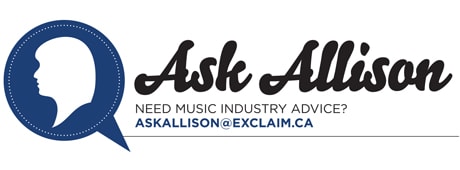Over the last few years I've written a number of songs. I don't have the talent to be a performer, but I think that some of my tunes are pretty good. I was wondering how to go about getting my songs to other artists to record, and what sort of compensation would be reasonable to expect ― assuming that anyone likes them. Do I need to own a copyright in order to be able to sell my songs, or could they just be recorded as demos?
You already own your copyrights. A copyright is created the moment you "fix" the song in a tangible format ― meaning the moment you write it down on paper or on sheet music, or the moment it's recorded for the first time. The next step is to register yourself as the writer of the song, and to do that, you should join SOCAN (www.socan.ca). SOCAN is a non-profit organization that represents the rights of songwriters and publishers; it also licenses music and collects and distributes royalties when your song is used in a commercial context (like radio play). SOCAN has great resources you can tap into, like workshops for the craft and business of songwriting, not to mention networking opportunities. And there are professional development grants available through the SOCAN Foundation. If anyone is interesting in recording your songs, make sure to secure your mechanical rights by joining CMRRA (www.cmrra.ca). I'd also suggest you look into the Songwriters' Association of Canada (www.songwriters.ca), which runs networking and song-pitching events throughout the year. And FACTOR (www.factor.ca) gives grants to songwriters for workshops and for recording demos, so take a look at their programs.
As far as selling your songs, start by approaching some local performers to see if there's any interest in what you have to sell, and to get some constructive feedback on the songs themselves. Bigger names in songwriting can sell their songs for an upfront fee and a share of the record sales, but in the beginning, you might consider giving a few away for free or for a share of sales. One thing you should never do, though, is give away your publishing rights to the performer or his/her record label. Publishing rights are your biggest, surest source of income, so hang on tight to those, at least until a publisher with a fat wallet comes calling.
Questions may be edited for space or content. Replies do not constitute legal advice and Exclaim! makes no guarantees about information accuracy.
You already own your copyrights. A copyright is created the moment you "fix" the song in a tangible format ― meaning the moment you write it down on paper or on sheet music, or the moment it's recorded for the first time. The next step is to register yourself as the writer of the song, and to do that, you should join SOCAN (www.socan.ca). SOCAN is a non-profit organization that represents the rights of songwriters and publishers; it also licenses music and collects and distributes royalties when your song is used in a commercial context (like radio play). SOCAN has great resources you can tap into, like workshops for the craft and business of songwriting, not to mention networking opportunities. And there are professional development grants available through the SOCAN Foundation. If anyone is interesting in recording your songs, make sure to secure your mechanical rights by joining CMRRA (www.cmrra.ca). I'd also suggest you look into the Songwriters' Association of Canada (www.songwriters.ca), which runs networking and song-pitching events throughout the year. And FACTOR (www.factor.ca) gives grants to songwriters for workshops and for recording demos, so take a look at their programs.
As far as selling your songs, start by approaching some local performers to see if there's any interest in what you have to sell, and to get some constructive feedback on the songs themselves. Bigger names in songwriting can sell their songs for an upfront fee and a share of the record sales, but in the beginning, you might consider giving a few away for free or for a share of sales. One thing you should never do, though, is give away your publishing rights to the performer or his/her record label. Publishing rights are your biggest, surest source of income, so hang on tight to those, at least until a publisher with a fat wallet comes calling.
Questions may be edited for space or content. Replies do not constitute legal advice and Exclaim! makes no guarantees about information accuracy.
